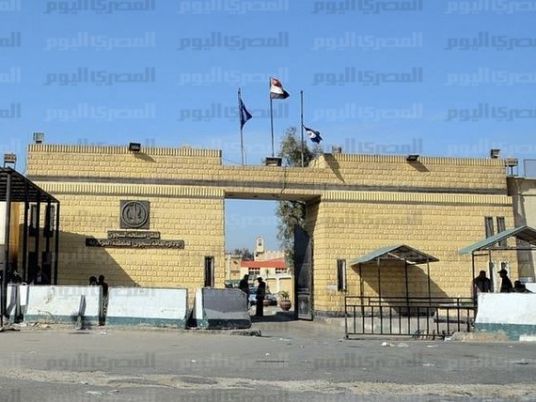
Human Rights Watch has called on the Interior Ministry to end violations committed against prisoners in Al-Aqrab maximum security prison, allow visits and ensure regular access to doctors and medical treatment.
In a report Wednesday, HRW said that political prisoners held in Al-Aqrab are repeatedly subjected to abuse by prison authorities, which led to a number of deaths.
Inmates are severely beaten, held in cramped “discipline” cells, denied visits by family or lawyers as well as denied access to medical treatment, HRW said.
The international rights watchdog called on the government to allow international detention monitors to visit the prison and the public prosecution to investigate deaths in custody and hold those responsible accountable.
“[Al-Aqrab] Prison sits at the end of the state’s repressive pipeline, ensuring that political opponents are left with no voice and no hope,” said Joe Stork, deputy Middle East and North Africa director at HRW. “Its purpose seems to be little more than a place to throw government critics and forget them.”
The 80-page report, titled “We Are in Tombs: Abuses in Egypt’s Scorpion Prison,” documents violations committed against the inmates inside the prison, officially known as Tora Maximum Security Prison, through interviews conducted with relatives of inmates, lawyers, and one former prisoner. HRW also said it reviewed medical files and photos of sick and deceased prisoners.
According to HRW, at least six inmates died in custody between May and October 2015. Two of whom had been diagnosed with cancer and one with diabetes. Relatives interviewed by HRW said the authorities prevented the men from receiving timely treatment or medicine deliveries, refused to consider conditionally releasing them on medical grounds, and failed to investigate their deaths.
Family members of inmates told HRW that the prison’s conditions have drastically deteriorated since the appointment of Magdy Abdel Ghaffar as interior minister in March 2015.
“Between March and August 2015, Interior Ministry officials banned all visits by families and lawyers, essentially cutting off the prison from the outside world,” HRW said.
Families were thus unable to deliver food or medicine to their kin, which resulted in what they deem a “starvation policy.”
There has been mounting anger over inhumane conditions at al-Aqrab prison, prompting a visit by the National Council for Human Rights (NCHR) to the notorious maximum-security prison late last year. Prison authorities arbitrarily tighten and loosen their grip over visitation restrictions since a months-long ban on visits in 2015.
While the prison was originally intended to hold “preventive detainees in state security cases,” according to the decree that established the prison, however HRW said it currently holds around 1,000 prisoners, most of whom belong to the Muslim Brotherhood’s top leadership, alleged members of the Islamic State extremist group, and various critics of al-Sisi’s government, including journalists and doctors.
The Ministry of Interior has repeatedly denied claims of abuse in detention facilities.
A source at the Prisons’ Authority denied allegations of violations inside the Aqrab prison, saying they are rumors perpetuated by family members of political prisoners.
The source also told Aswat Masriya that there haven’t been any deaths as a result of violations.
He explained that the prison administration is facing a congestion problem during visitation hours but that it is working on fixing it.
He also added that there are bylaws that punish inmates by banning them from visits or placing them in solitary confinement, adding that any police officer who violates these bylaws will be prosecuted.




